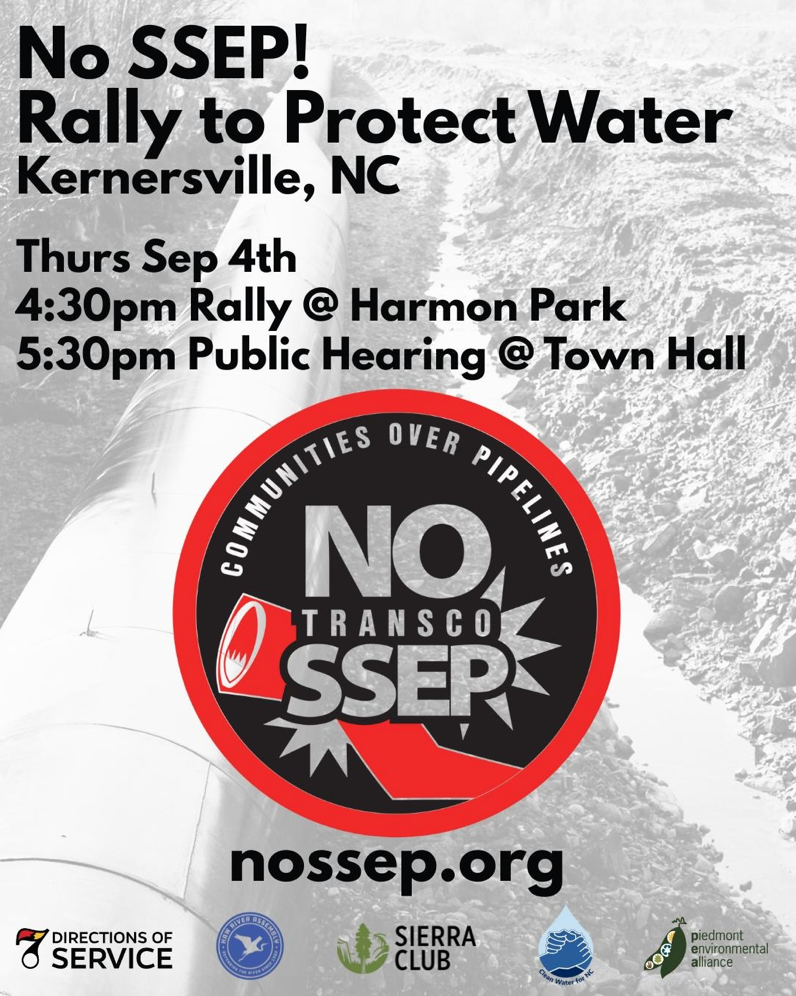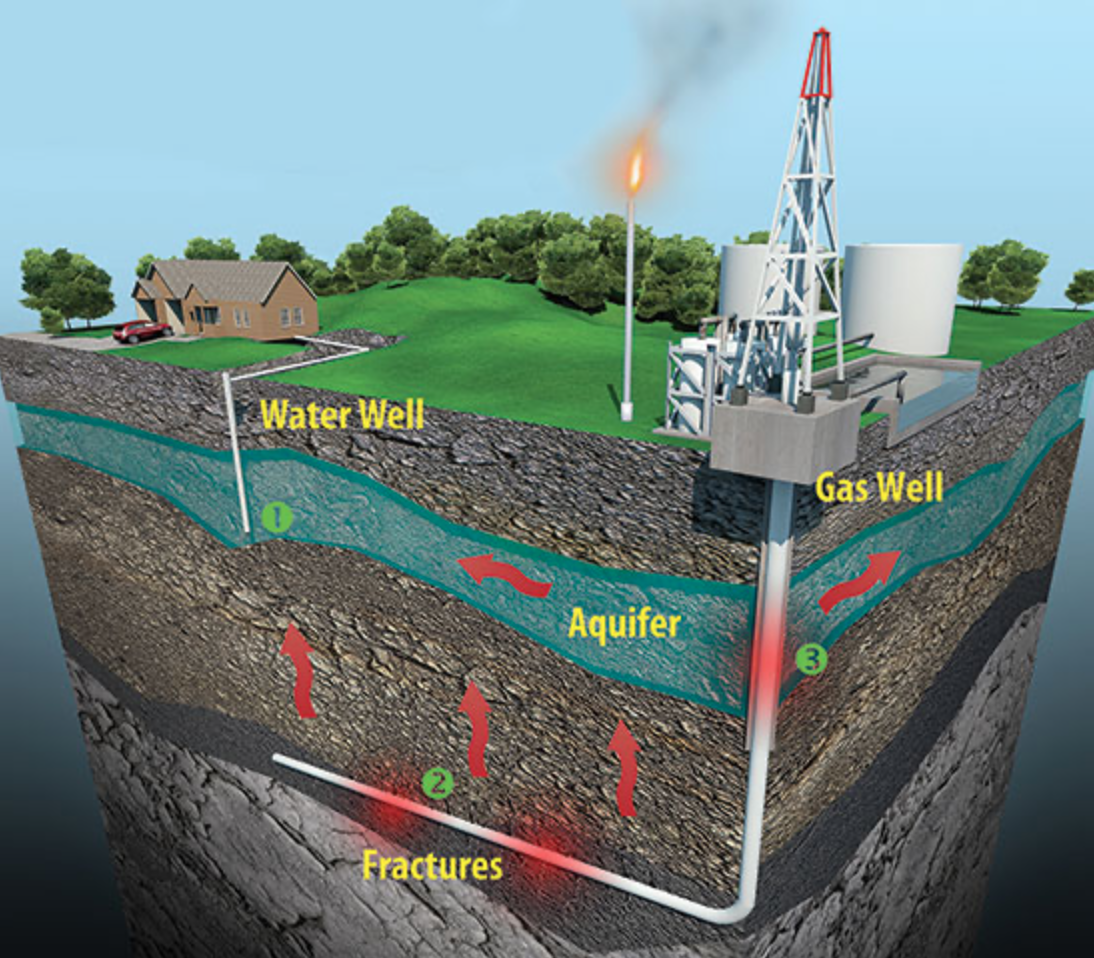Free Webinar 8/26 and 9/4 rally details!
Free webinar: We Pay, They Profit: Fighting North Carolina’s Methane Gas Plan
Tuesday, August 26, 6:30-8 p.m.
Online - Register HERE!
Hosted by Clean Water for NC, Appalachian Voices, NC League of Conservation Voters, 7 Directions of Service and Haw River Assembly
Hey, all you active allies! Aidan here with
exciting news! There are TWO unique upcoming opportunities to learn and take action to protect our Water.
You may have seen on Haw River Assembly's socials: we are cohosting a FREE Webinar next Tuesday evening. Join organizers from across the state - we will be connecting the narratives of the Gas Build-Out happening across North Carolina. Come learn from Clean Water for NC, NC League of Conservation Voters, Appalachian Voices, and more! You can register here (all registrants will receive a recording of the webinar).
Want to do something off-screen?! Come join your community to speak out against the Southeast Supply Enhancement Project at the Rally to Protect Water on September 4th in Kernersville. Click here for more info!
North Carolina's Direct Risks: “The SSEP pipeline poses serious local dangers to North Carolina communities, including a "42-inch pipeline with a blast zone that includes hundreds of homes, businesses, schools, day cares, parks and recreation centers…” “Transco has an alarming safety record - over the past decade, its pipelines and compressor stations have exploded or caught fire ten times, causing six deaths and 103 injuries” https://wfuogb.com/26552/environment/community-pushes-back-against-natural-gas-pipeline-expansion/
The project would make "more than 100 individual waterbody crossings across 16 watersheds" including "one major crossing of the Dan River in North Carolina that would span 230 feet" - the same Dan River that "is still recovering from a 2014 toxic coal ash spill by Duke Energy" https://appvoices.org/2024/12/20/reporter-memo-southeast-supply-enhancement-project/
Additionally, expanded compressor stations would "contaminate nearby communities with harmful air pollutants up to 350 percent over current levels" burdening areas that already struggle with poor air quality. https://insideclimatenews.org/news/28052025/transco-pipeline-plan-would-sharply-increase-north-carolina-air-pollution/
Join us for our Gas Webinar and the September 4th Rally to protect North Carolina and our neighbors from this unnecessary pipeline!
As always, this is Aidan wishing community care, light, and love.
Take care of yourselves and each other,
~ Aidan Loretz (they/them, she/her)
Connecting the fracking dots:
Have you ever wondered how aquifers become contaminated by fracking gas? See image below. This is happening to our Northern neighbors who live in places like Ohio, West Virginia and Pennsylvania. (NY banned it)
What happens next? After extraction, which has shown to pose TERRIBLE consequences to the health and safety of our neighbors, (https://www.propublica.org/article/scientific-study-links-flammable-drinking-water-to-fracking and https://insideclimatenews.org/news/30112022/fracking-pennslyvania-settlement-shapiro/ ), that fracked methane gas is then sent south via pipelines (like the one proposed by Transco).
Food for thought: Our Responsibility to Northern Communities
While North Carolina would bear further transportation risks, we must also recognize that approving this pipeline expansion directly fuels the continued environmental devastation of fracking in Pennsylvania, Ohio and West Virginia. These communities already face the severe health impacts, water contamination, air pollution and seismic activity caused by hydraulic fracturing operations depicted in the above diagram.
By providing a new and continued market outlet for fracked gas, the SSEP pipeline would incentivize even more intensive drilling and fracking in the Appalachian region, perpetuating a cycle of environmental injustice where extraction communities bear the greatest burdens while corporate profits soar and flow elsewhere. North Carolina has an opportunity to break this chain by rejecting infrastructure that enables further harm to us and to our northern neighbors who are already paying the price for our region's energy demands.
Context always helps!




